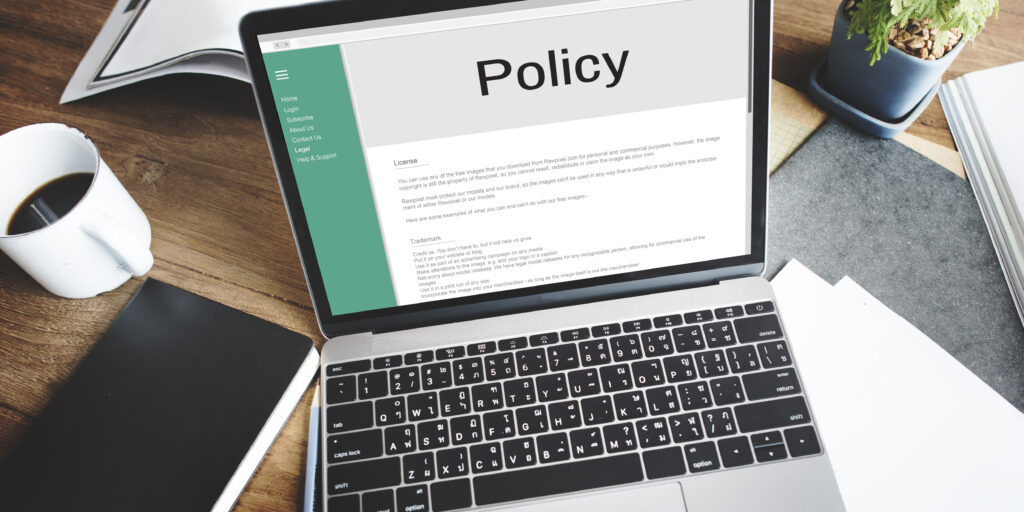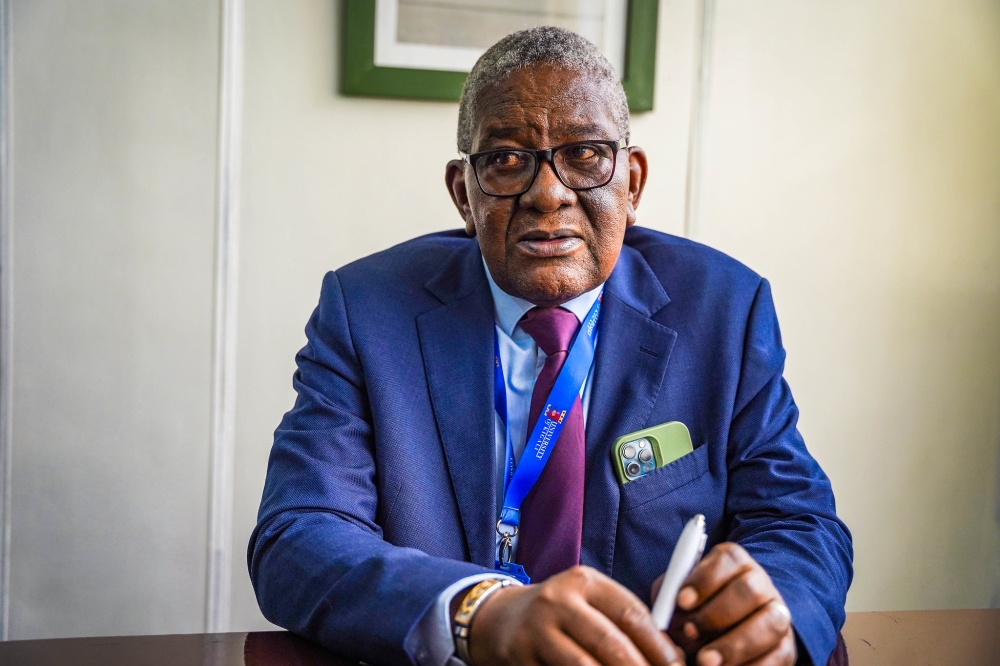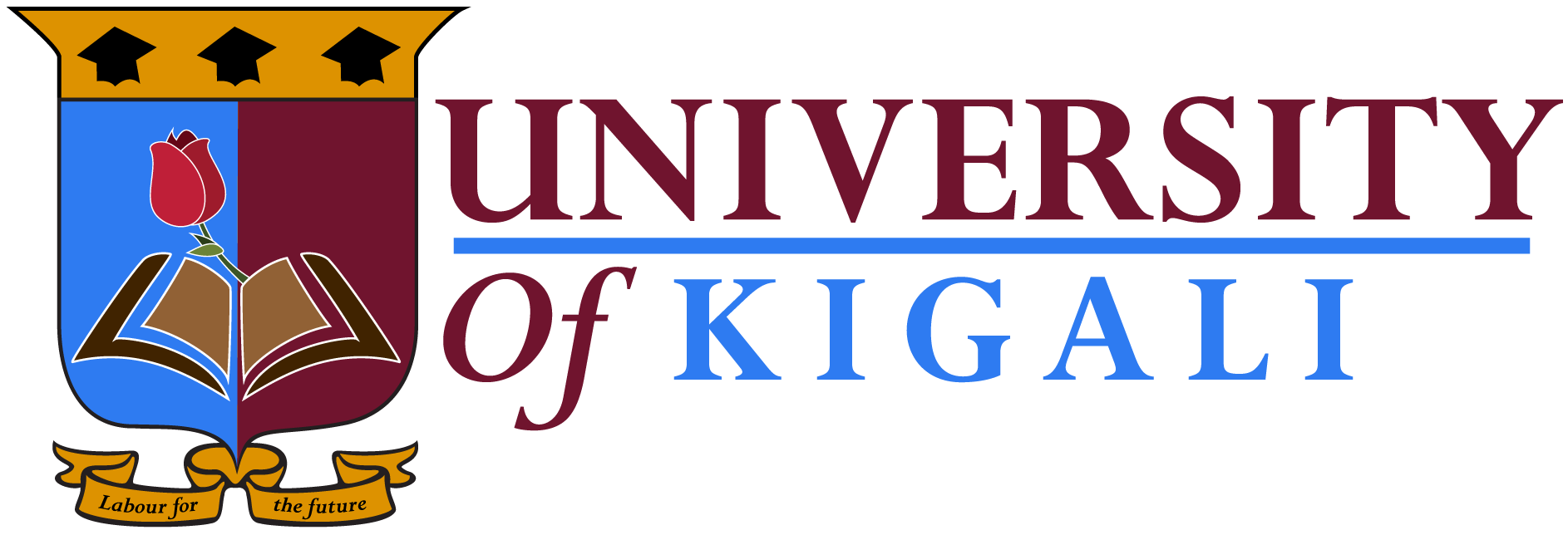Journal of Education

Kigali International Journal of Education (KIJE)
Committed to open free access, the KIJE seeks to be a leading peer reviewed, online, interdisciplinary journal of education focusing on research in education covering the African continent. It invites submissions from around the world that have a dedicated focus on education in Africa.
The journal includes a particular interest in research toward scholarly analyses of issues and trends that inform educational practice(s) within and/or across all education sectors and disciplines.
Of particular interest to the journal are policy issues and impacts, social justice in education, climate change research in education, curricula, teaching, learning, and pedagogy, teacher preparation, resilient education systems and practices, education and the UN sustainable development goals.
Indicative areas of the journal include education issues, explored across pre-school, primary, secondary, and tertiary levels contexts. Such issues could cover, for example, pedagogical, curriculum, policy, leadership, management, international education, globally related issues such as UNSDGs in education amongst other issues. Of great interest to the journal, among other matters are the significance and importance of the problem, the quality of the evidence gathered to answer the research questions and the broader implications of the findings. The KIJE is determined to shift the discourse from mere discoveries to practical applications and implications for developing new understandings and resolving current problems.
Please make sure to read the instructions for authors before submitting a manuscript. The journal is published online two times a year: in July and in December. Each issue will carry between 10 and15 articles, including an editorial written by the Editor in Chief. The Journal will, from time to time, feature special issues based on identified areas of local and global interest in education. The journal has an open approach to methodological preference, as long as the adopted approaches are based in sound scientific rationales. KIJE also invites book reviews on recent publications. It can also carry conference calls and other special events at a small, negotiated cost.

Journal policies
The KIJE is strictly guided by the following policies which are briefly outlined below and which have largely been drawn from the internationally acknowledged Committee On Publication Ethics, COPE guidelines appended at the end of this document. Below we highlight key elements of each of the following:
- Publication Ethics Policy
- Plagiarism Policy
- Peer Review and
- Complaints Policy
- Conflict of Interest Policy
- Copy right and access policy
- Editorial board policy
- Advisory board policy
- Generative AI policy
- Journal Subscribers
- Journal indexing policy
In addition to the above policies, the KIJE has the following guidelines:
- Author guidelines
- Reviewer guidelines
- Publishing fees

Policies
Publication Ethics Policy
- Anonymity: all names of institutions or participants including proxy information that may easily lead to the identification of participants must be expunged from articles submitted for publication to the KIJE.
- Confidentiality: information provided by research participants must be treated with the utmost confidentiality and cannot be divulged in ways which may compromise or jeopardise the integrity of the sources of the information.
- Informed consent: research participants must be fully informed about the purposes of the research and its publication and their data can only be used after they have signed an informed consent undertaking.
- Right to withdraw: all research participants must be told that they have the right to withdraw from the research at any time and without giving any reasons for their decisions.
- Beneficence: participants must be accorded full disclosure about how they will benefit from being informants or participants. Benefits accruing to the system as a result of their involvement must also be disclosed.
- The above constitute a general framework of ethical guidelines which authors must observe usually before data collection.
- A statement of ethical adherence must be included in each article at the time of submission for review

Peer review and complaints policy
- The KIJE operates a double-blind independent peer review policy. By this we mean the following: double blind means that the reviewers will not know who the authors are, nor will the authors know who reviewed their work. Independent review means that the reviewers, though invited by the editor in chief to review, will only do so voluntarily. There is no financial inducement involved for undertaking review work at the journal.
- when an article arrives at the desk of the Editor in chief, it is immediately reviewed for relevance to the journal, scope, and language efficacy. This is usually done by the Editor in chief or the Journal administrator, if appropriate. The purpose of this initial desk review is to determine if the article worth sending to reviewers.
- The authors are informed in writing of the decision of the editor at this stage.
- The journal administrator helps the Editor in Chief to identify three of the most suitable reviewers for the article who are then contacted by email. At this point, all references to the actual names of the author/s are expunged from the paper. The request to review should also be accompanied by the abstract.
- The potential reviewers are asked to indicate their willingness to review and the task completion requirements are spelt out at this stage.
- As soon as the reviewers agree to review, the paper is sent to them, together with the review guidelines and review comments sheet.
- The author is again informed when this has been done and an indicative review time should be given here.
- When the independent reviews come in, the editor in chief should read these, especially the recommendations. The key recommendations should be compiled ed in one documents which is then sent to the author/s for revision.
- When the revisions are done, an editorial board meeting is called to review the process, the recommendations, and the corrections. Any outstanding matters at this stage should be communicated to the authors with new deadlines for final submission.
- When the corrections have been done and approved, the Journal editorial assistant will then suggest which articles go to which issue. At this stage, date of submission should be taken into account when allocating articles to issues. Under normal circumstances, publication priority should be based on a first come first serve process. Other considerations including number of articles from specific institutions in the same issue need to be considered to ensure a fair distribution of publishing opportunities to all.
- Usually, the Editor in Chief calls another brief meeting of the editorial board members available to review the entire process leading to the publication of a specific issue.

Plagiarism Policy
- The KIJE operates a stringent anti-plagiarism policy. We define plagiarism as unacknowledged use of material from other sources.
- Acknowledgement of origin of materials obtained from other sources should be done in accordance with the latest APA GUIDELINES which this journal uses.
- Authors must test the similarity index of their articles by placing it through a plagiarism check software. The KIJE only reviews and accepts articles checked via turn it in software. A 15% similarity index is the maximum allowable for articles published by the KIJE.
- Every article submitted for publication must be accompanied with a Turnitin similarity index report.
- The KIJE subjects 20% of all the articles it publishes to its own similarity index checks. The papers are randomly selected before publication of the issue.

Dealing with complaints
Authors complain over a myriad of issues including the review process, the quality of the review especially the contradiction between the comments of different reviewers, the time taken to review. They also complain that the changes they made were not reflected in the final article. The following are broad principles followed at the KIJE when dealing with complaints:
- Immediately acknowledge complaints when they are received at the journal, promising the complainant to expect a resolution within a stipulated timeframe.
- The Journal should have a specific team identified to deal with author complaints. Such teams should usually have a legally trained person and not more than three other experts. If the team is locally available, they could meet in person otherwise they could also meet online.
- The decision should be communicated to the Editor in Chief who then writes to the complainant with the outcome and resolution.
- As a general guideline, complaints should be dealt with in a week or less.

Conflict of Interest policy
Conflict of interest happens when the integrity of the journal decisions have been or are perceived to have been compromised because of some or all of the following:
- A reviewer who might know the author.
- A reviewer who works in the same institution as the author
- A reviewer who has previously published with the author
- A reviewer who is a member of the editorial board and is reviewing an article by another board member.
In all cases, the KIJE will establish a declaration form which reviewers and editorial board members routinely complete each time they are assigned reviewing responsibilities.

Copy right and access policy
The KIJE will assume full copy right for all materials it publishes both online and in print. We define copy right as the type of intellectual property that protects the original works of the authors. This means that whatever work is published by KIJE:
- Can be reproduced by the author for academic purposes.
- Can be further developed by the author and by others in furtherance of the knowledge project. When this is done, permission must be sought from the KIJE in the first instance.
- Transform the work into other digital forms if there is demand which reflects issues of inequity of access.
- All online customers have free access to the material published by the journal.
- The published materials are freely downloadable by members of the public.

Editorial Board policy
The KIJE will be governed by the Editorial Board which will also work in close conjunction with an independent Advisory board.
The Editorial Board will comprise:
- A wide range of scholars and practitioners including 50% Professors, 40% doctoral qualified and 10% specially invited because other acknowledged expertise and service to education.
- The Board will comprise of a minimum of 20 individuals, with a good representation of both Male and Female.
- Not more than 3 members will be expected to be from any one institution, including the hosting institution.
- The editorial Board will be chaired by the Editor in Chief
- The Editorial Board will have at least one general meeting every year.
- The Editor in Chief shall have the right to convene ad hoc Editorial board meetings with no less than 20% of the size of the board to transact routine board matters such as considering the review comments of reviewers, overseeing the processes leading to the publishing of a specific issue, dealing with routine author complaints, among others.
- The editorial board members may be allocated reviewing responsibilities from time to time.
- The editorial board shall always seek to maintain the integrity of the journal in the public domain and especially discuss the primary issue of journal impact and integrity at every AGM.
- The editorial board shall comprise a good selection of people from both the international, regional, and in-country communities. At least 5 of the members shall be from outside the continent of Africa and be as widely distributed across the other continents.
- In conjunction with the Advisory Board, the Editorial Board must organise periodic training for reviewers to keep abreast with policies and enhance the quality of review.

The Advisory Board
The Advisory Board shall have the responsibility to inform the Editorial Board of the latest best practices and developments in the area of publishing.
- It will especially advise on issues of indexing, conferencing, links with other journals, impact issues, among others.
- It will comprise of at least 6 members, three of who should be international, and remainder will be selected from the region and from Rwanda.
- Members can be invited to submit CVs as part of the recruitment to membership of the boards.
- The advisory board should meet at least quarterly in March, June, September, and December.
- The Advisory Board selects its own chair.
- The Advisory Board will have a standing item at the Editorial Board AGM to report on their observations and make recommendations.

The Generative AI policy
The KIJE acknowledges the centrality of Artificial Intelligence and its potential to generate knowledge for both users and producers. While its use and applications must be encouraged and supported, authors need to be mindful of the following:
- Not to plagiarise material from AI platforms as this constitutes a serious breach of intellectual integrity.
- All material utilised from AI sources must be properly acknowledged in appropriate ways as indicated by the KIJE (see author guidelines)
- The quality of AI generated material is high. Editors must be careful to not depend entirely on external quality of writing as this might reflect some people’s financial capability to purchase AI products while poor authors would depend entirely on their own devices. The conceptual, theoretical, analytical, and methodological efficacy of papers should always be considered first ahead of linguistic elegance.
- The journal should establish a social platform presence to monitor reader reactions to its publications, fine tuning the journal quality processes, identify potential issues early before they get out of hand, and engage with readers more readily.
Subscribers to the Journal
The journal shall be open to receive education related research findings, theoretical discourse, pedagogical methodological manuscripts from academics/faculty members (teachers, educators, education managers, education leaders, graduate education students) from teacher education and general education-oriented institutions of higher learning across the globe.
Journal Indexing
The Journal shall publish two times a year (July and December). In order to facilitate broad dissemination of its content, the journal shall be indexed in African Journal Online (AJOL), Scopus, ISSN data base, Open Access, EBSCO (US) among others.

Author Guidelines
- Authors must not start writing before they read these guidelines carefully. Please feel free to consult with the Editor in Chief in case you do not fully understand any aspect of these guidelines.
- At KIJE, we fully endorse the COPE guidelines on AI and Publishing and in particular, to note the following:
- Authors who use AI tools must be transparent in disclosing the AI tools used.
- Authors have full responsibility for the content of their manuscripts, even those parts produced by AI tools, and are thus liable for any breach of publication ethics.
- Authors must be satisfied with the scope of the journal before they decide to publish with the journal.
- Authors are advised to read a few articles from those published previously by the journal to satisfy themselves about suitability of the KIJE for what they wish to publish.
- Authors can contact the Editor in Chief with any queries regarding publication before they make any publication decisions.
- Two main types of papers are generally admissible at KIJE, conceptual/theoretical and empirical papers. Other types of papers such as reviews, dissertation summaries, and reports of commissioned research, amongst others, can be considered from time to time.
- Conceptual papers generally tend to use secondary data from other sources to advance new or emerging thinking. Empirical papers, which most of authors tend to submit, use primary data from research they themselves have conducted.
- Authors are advised to comply with the following: length of articles (usually between 5000 and 8000 words per article)
- The journal adheres to the APA referencing style. The APA system is regularly updated and the journal.
- Authors are advised to visit the website Reference examples for guidance related to various types of publications including the following: periodicals, books, edited books, chapter/s in edited book/s, reports and Gray literature, conference presentations and proceedings, dissertations and theses, unpublished and informally published works, MOOC referencing’ Power-Point slides and Lecture notes. Radio and broadcast references, YouTube video reference, podcasts references.
- The general structure of papers accepted at KEJI will usually include: a title; a 250-word abstract with 5 or 6 key words, an introduction and background, a literature review, a statement of the problem, methodology, findings, discussion, and conclusions. Depending on genre, these structural guidelines can be varied.
- When submitting, authors are advised to make sure they submit a similarity index report. Where possible, all articles must be accompanied by a confirmation of proof reading, either by the author or by a registered english language proofreader.
- All papers will be submitted electronically via the KIJE website. To do this, authors are required to first register with the journal.
- Upon successful submission, authors will receive a real time acknowledgement which will indicate the next steps to be undertaken by the journal.
- Once a paper if approved to go through the double-blind peer review process, we expect to provide feedback to authors within a six-week period. If the six-week period lapses before feedback is received, authors should feel free to get in touch with the Editor in Chief.
Reviewers’ guidelines
The review process serves two major purposes.
- To provide a basis for identifying and recommending only the best articles with the most convincing evidence bases.
- To create a supportive and nurturing environment, recognising that authors are at different levels, some need little support while others need more support.
The table below provides useful information for both reviewers and authors about what to expect in each of the major components of the paper.
Component of the paper | Criteria for high quality | Comments about how this section meets the criteria | Total score achieved for this section | The title | Must be short, clear, and informative.
Must usually say what is being researched, why, with who, and how.
| 5 |
|---|---|---|---|
Abstract | Must be concise and not exceed the limit set, must provide a purpose/rationale, the key questions/ objectives; methodological approach, the key findings, and key implications; must end with a set of five to seven key words. | 10 | |
Introduction and background | Must clearly show why this research is necessary, what might happen if this research is not conducted, provide a description of the status-quo and its inadequacies and indicate in broad terms what seems to be the context of the problem including especially what we don’t quite know. | 15 | |
Literature review | Should at the very minimum have three sub sections:
1. A conceptual section where the key words are discussed critically.
2. A theoretical section, where the critical theories associated with this area are discussed. Critically the section must end with a discussion of how the theories influence the decisions made about this paper.
3. The empirical review, which provides a summation of the state of knowledge in this area, the research conducted in different parts of the world regarding this area. The review must end with identification of gaps for this research.
| 20 | |
Methodology | Clear discussion of paradigmatic considerations, design, sampling data collection, ethics, and quality control | 15 | |
Findings | Visually appealing presentation; analysis and interpretation | 20 | |
Conclusions and recommendations | Processing of conclusions from the analysis, limitations, and recommendations and especially how they are evidence based | 10 | |
Referencing | Strict adherence to APA, full representation of all references. | 5 |
List of specific corrections required:
Review grid and criteria: (0-49 reject); (50-60 major revisions); (61-70 substantial revisions); (71-99 minor revisions); (100% publish with no corrections).
Publishing fees
- Payment will only be required after the article has been reviewed, accepted, and earmarked for publication.
- Authors are required to contribute towards the costs of publishing. However, readers do not pay anything to access the knowledge. In 2025, the page fees are set at a nominal amount of $5 per submitted paper or equivalent for those who cannot pay in USD. The amount payable is only communicated to authors when the paper has been fully accepted and is ready for publishing.
- The journal publishes articles of length between 5000 and 8000 words inclusive of references.
- Papers should be submitted in 1.5 line spacing, and 12-point fond Times Roman.

The Editor in Chief
Professor Felix Maringe (interim)
Outgoing Editor in Chief of the prestigious South African based Journal of Educational Studies (JES), Felix is a Professor of Higher Education and current DVC Institutional Development, Research, and Innovation (IDRI) at the University of Kigali. Felix brings extensive publishing knowledge, international higher education experience gained in Zimbabwe, the UK, South Africa and now, Rwanda.
Three Co Editors
Professor Felix Mavondo
A world class higher education expert in business education, currently based at the University of Monash in Australia as a distinguished professor, Felix Mavondo brings immeasurable value to the KIJE.
Professor Abdulrazaq Oniye
From Nigeria, Professor Oniye is currently Dean of Graduate Studies at the University of Kigali. He is a world class scholar in educational guidance and counselling and has a proud publishing record and mentoring experience in higher education.
Dr Elizabeth Owino,
From Kenya, Dr Owino is an educator of renowned excellence and specialises in quality issues in education. She currently is Dean of the Education School and Acting Director of Quality at the University of Kigali.
Editorial Board Members
Comprises 12 experts in Education distributed across the continent and abroad.
- Professor Oswel Hapanyengwi, Dean of the Faculty of Education, University of Zimbabwe.
- Professor Anbanithi Muthukrishna, Distinguished Professor of Education, University of Kwa Zulu Natal, South Africa
- Dr Abdulrahaman Yusuf Maigada, University of Port Harcourt, Nigeria
- Dr Awoniyi Samwel, University of Arusha, Tanzania
- Dr Martin Prew, University of the Witwatersrand, Affiliate
- Dr Batisani Changu, Botswana Open University
- Professor Murairwa, VC Africa University, Mutare Zimbabwe.
- Dr George Miti, Africa University Mutare. Zimbabwe,
- Professor Gert Westhuizen, distinguished Professor University of Johannesburg
- Dr Tiffany Banda, University of Malawi
KIJE Advisory Board Members:
- Professor Ruksana Osman Senior Deputy Vice Chancellor Academics, University of the Witwatersrand, South Africa
- Professor Velisiwe Gasa, University of South Africa (UNISA)
- Dr Otilia Chiramba, Rhodes University, South Africa
- Professor Faith Mkwananzi, University of the Free State, South Africa
- Professor Chika Sehoole, University of Pretoria, South Africa.
- Professor Joanna Yusuf, University of Nottingham, UK
- Dr Michael Kariwo University of Alberta, Canada
Submitting your article
After you have satisfied yourself that your paper is ready for submission, you have two options to support your submission decision.
- Email submission: please submit your paper as email attachments to editor@uok.ac.rw The submission must include: two copies of your paper, one with full details and another with author details expunged to facilitate double blind reviewing; a formal antiplagiarism letter confirming that your article has a similarity index lower that 20%; a letter from a professional language expert attesting that they have read your paper and can confidently say that it is linguistically competent. Make sure that the details of a corresponding author, such as full name and their email address are clearly indicated especially at the bottom of the abstract.
- Online submission: After you hit the ready submit button, the website will take you through a set of steps until If you actually submit. You will usually need to prepare two versions of each document. One set will all be in Pdf format and another in word format. The system will reject submissions which do not fully represent the full documentation set.
- In both cases, immediately after submission, you will receive a message acknowledging receipt of your submission and an indication of the next steps.
- For those submitting online, you have the added advantage of being able to track your paper at any time and know its status.
- After publication, celebrate and get noticed opens in new tab/window!
Read More
We aim to publish twice a year, in July and in February of each year.
